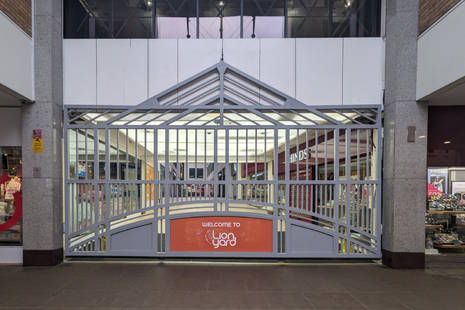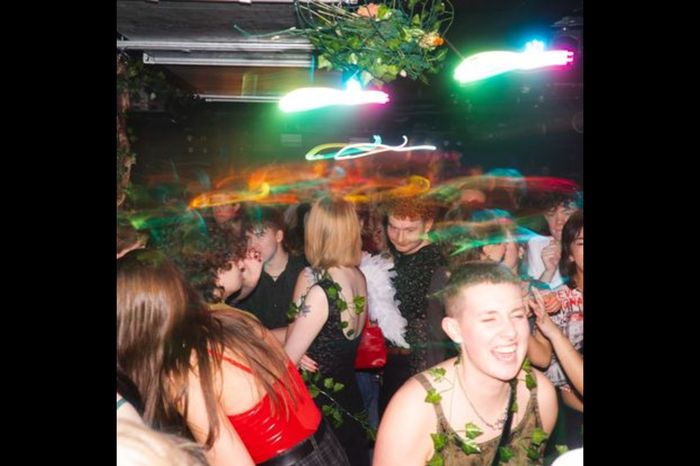Why do things shut so early here? An investigation into Cambridge’s nightlife
Nick James explores Cambridge’s lack of a nightlife, and why the city is such an outlier

It’s 4 a.m. on a Cambridge night out: you’ve just come out of Mash and you’re starving. Where do you go? Sadly, your options are very limited: if you’re lucky, Gardies may still be open, but other than that, all other clubs, bars, fast-food restaurants and supermarkets will be shut. For people who have never been to Cambridge before, this will strike them as very odd: so many other cities in the UK have a thriving nightlife that goes on well after the sun rises, particularly cities with high student populations.
So, why is it that Cambridge – a university city – has such a timid nightlife, and what impact does this have on the city? To find out the answer to this question, I spoke to Michael Bryce, founder of ‘Nightlife Cambridge’, which is a promotions company for the best nights in town. He’s been working in the nightlife industry in Cambridge for almost six years as a bartender, bar supervisor, promoter, and bouncer – he’s seen the industry through all its highs and lows. He told me that when he was working as a bouncer, it was “challenging” getting home at 4:30 in the morning, dealing with difficult students and having to go through furlough during Covid, but “it’s been fun, I don’t think I would take it back”.
When I asked Bryce why he thinks Cambridge has a quieter nightlife than some other UK towns and cities, he said: “I think that there is a multitude of factors causing this, mainly of which is that there seems to be some level of disdain towards the late night industry when it comes to the impact that it has on young people, which I think is completely misplaced.”
He added: “I think there’s a multitude of benefits to going out with your friends. I think it’s a foundational experience for young people which influences the rest of their lives. It’s where they will be making connections and social bonds, which is just as important as anything else that they might be learning about.”
“I think it’s a foundational experience for young people which influences the rest of their lives”
This is a particular problem in Cambridge, Bryce said, because being out at night is “seen as a complete blockade to any sort of academic performance.” There is very little appetite from the University to promote the nightlife, and Bryce said that some of his student promoters have been threatened with disciplinary action by the University for handing out tickets and adverts for nightclubs in colleges. With this kind of pressure, it’s no surprise that fewer students are going out, and without this support, nighttime industries are struggling.
On top of that, clubs aren’t seeing the “summer of love” they anticipated once lockdown restrictions eased. Attitudes toward nighttime venues remain quite muted; Bryce told me of the days before the pandemic when 2000 people would turn up for a Wednesday night out at Ballare (which has since shut down) – something that seems unimaginable for Cambridge’s nightlife today.
Furthermore, nightlife industries haven’t been getting the support from the Cambridge council they need: “The city council needs to be much more tolerant, and they need to be understanding of our needs as well.”
But despite these challenges, Bryce remains optimistic about where the industry is heading. According to him, the council is changing and giving nighttime industries more support. For example, the council recently allowed the Taco Bell in the city centre to extend their opening hours to 4 am, and Wendy’s, which is opening a restaurant in the town centre soon, has been granted permission to run a takeaway window for deliveries until 2 am.
Furthermore, despite the difficult financial situation facing Cambridge clubs, things may be finally looking up. After Rekom UK, which owns Lola Lo’s and Vinyl, was forced to call in administrators at the start of the year, Lola Lo’s was bought by local DJs who aim to reinvigorate the nightlife scene in Cambridge.
“I think it’s going to be really good,” Bryce told me, “they’re going to get some new unique stuff in there. They’re already making changes where they’re giving student reps huge amounts of commission and they’re putting on new events […] it’s going to be awesome.”
“Many students at Cambridge live near busy nighttime venues which are already quite loud – and there is no desire for noise levels to get worse”
But will these changes be good for everyone? Many students at Cambridge live near busy nighttime venues which are already quite loud – and there is no desire for noise levels to get worse. One student told me, “I would say noise has affected my quality of life, even in deciding where I wanted to live in 2nd year. As enjoyable as a night out is, the noise it causes from drunk students partying or being loud can be quite annoying. One of my friends lived where students were partying every week even during exam term, not only affecting their sleep as well as their study.”
Another said: “Having spent the last year living far too close for comfort to Cambridge students’ favourite cocktail bar, La Raza, I can quite safely say that extending the hours that Cambridge’s nightlife venues are open would be detrimental to my sleep pattern! Whilst the noise from the street itself never keeps us awake – how loud can some tipsy second years sharing a pack of cigs really be? The sound of La Raza’s bass is another matter entirely. My accommodation’s walls have been known to shudder slightly on particularly loud nights – so at least I can normally find solace in the noise stopping in the early hours!”
So while a more dynamic nightlife might not sound appealing to everyone, many in the industry are confident that with careful management, improvements can be made without any detriment to students living nearby.
To many, Cambridge’s nightlife is more than just an industry: it’s their livelihood, their passion, and for students, a time to live freely and enjoyably. Part of the student experience is exploring one’s newfound freedom, and nighttime industries are a big part of that. While a Wednesday Revs may not be that conducive to your morning work schedule the following day, there is more to university life than studying, even at Cambridge. As the industry faces unprecedented economic and regulatory challenges – it’s important we help keep this vital industry and culture alive for all the benefits it may bring.
 News / Colleges charge different rents for the same Castle Street accommodation2 March 2026
News / Colleges charge different rents for the same Castle Street accommodation2 March 2026 News / News in Brief: waterworks, wine woes, and workplace wins 1 March 2026
News / News in Brief: waterworks, wine woes, and workplace wins 1 March 2026 News / Climate activists protest for ‘ethical careers policy’1 March 2026
News / Climate activists protest for ‘ethical careers policy’1 March 2026 News / Angela Merkel among Cambridge honorary degree nominees27 February 2026
News / Angela Merkel among Cambridge honorary degree nominees27 February 2026 News / Private school teacher who lied about Cambridge degree barred from teaching27 February 2026
News / Private school teacher who lied about Cambridge degree barred from teaching27 February 2026









